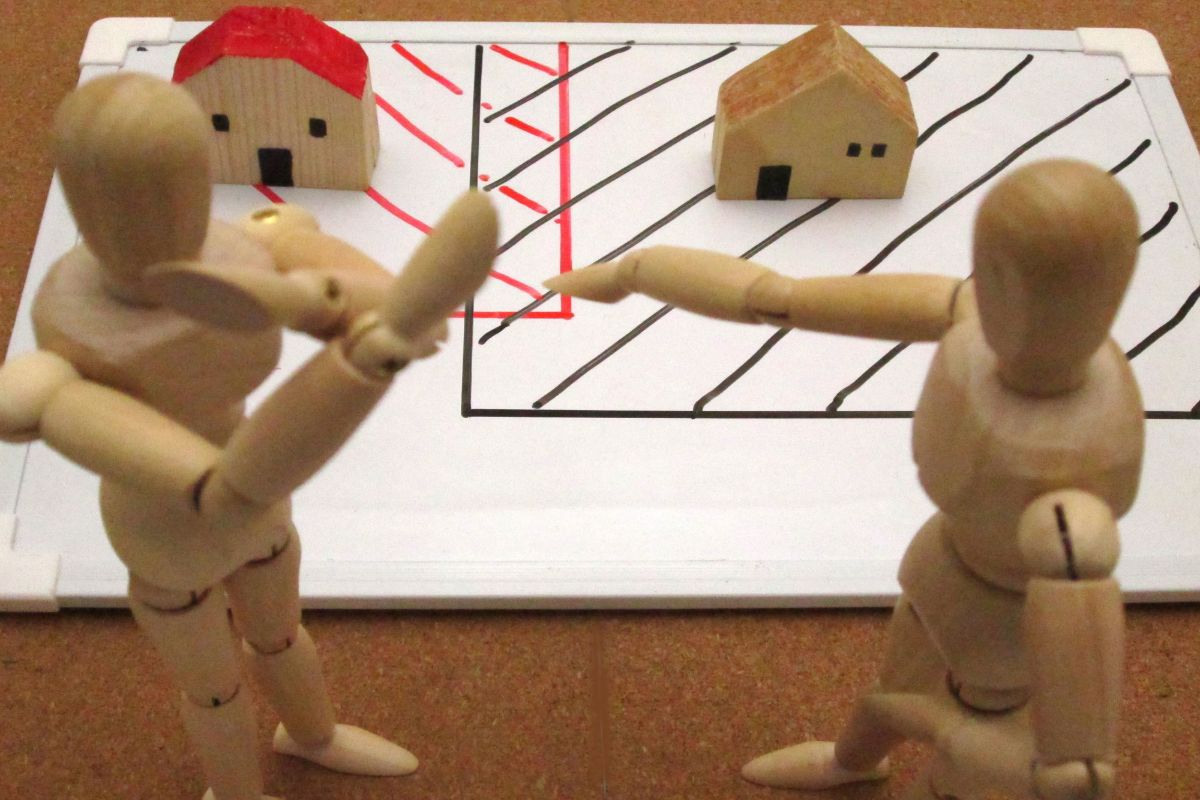Most homeowners take pride in managing the upkeep of their homes and properties, both to enjoy their property and to maintain their property values. However, despite your best efforts, you may have neighbors whose actions, or lack thereof, on their property start to affect your property adversely.
Whether by overgrown shrubbery, dead tree limbs, poorly maintained fences, toxic fumes, or constant loud music, an encroachment on your property by your neighbors may be violating your legal rights. If you are in this situation, an Arizona real estate lawyer may be able to help.
Physical Encroachments
Arizona law defines a nuisance as a “condition which represents an unreasonable interference with another person’s use and enjoyment of his property and causes damage.” Graber v. City of Peoria, 156 Ariz. 553, 555, 753 P.2d 1209, 1211 (Ct. App. 1988). Some common nuisances are tree branches or roots that protrude onto your property or overgrown bushes that cross the property line into your yard. If you have this type of nuisance on your property, you have the right to cut off the offending branches, roots, or shrubs that have grown beyond the property line into your yard.
However, sometimes, your remedy may not be as simple as trimming some tree branches. For instance, overgrown tree roots may have found their way into your sewer or other underground utility lines and caused great damage, necessitating repairs. In addition, an unkempt fruit tree may constantly be dropping fruit on the vehicles parked in your driveway and damaging their paint. If you suffer damages due to your neighbor’s failure to control their trees, you may have the right to file a lawsuit against them.
Another type of encroachment dispute might arise when you discover that your neighbor’s fence is located on your property, well past the property line. In that case, your neighbor may have a claim for adverse possession of that area of your property, depending on how long the fence has been in that location. Enlisting the help of a professional surveyor can clarify boundary lines. However, you still must determine how to resolve the situation with your neighbor.
Intangible Encroachments
In some cases, an encroachment may be intangible but equally interferes with your use and enjoyment of your property. For example, suppose your neighbor has a hobby that causes a toxic smell that continually pervades your yard to the point that you cannot go outside. In that case, it may rise to the level of a legally actionable nuisance. Even if your neighbor’s pastime is legitimate, it still may constitute a nuisance if it interferes with your enjoyment of your property.
While music on its own is not a nuisance, it can become a nuisance in certain situations. If a neighbor plays music at all hours so loudly that your lawn furniture reverberates, sitting outside to enjoy your yard may not be realistic. As a result, you may have an encroachment claim against your neighbor.
Legal Remedies for Encroachment
You may have a legal cause of action against your neighbor if the encroachment causes you damages. In this situation, you may be able to seek injunctive relief against your neighbor or, in other words, a court order stopping your neighbor from continuing to cause harm to your property. You also may qualify to seek money damages from your neighbor in appropriate circumstances.
If your property is part of a homeowners’ association (HOA), you may have a legal cause of action against your neighbor based on the HOA’s covenants, conditions, and restrictions (CC&Rs). You could sue for breach of contract if your neighbor violates those CC&Rs. In some cases, homeowners’ insurance may be an option for relief in these types of lawsuits.
Depending on the nature of your encroachment, municipal or other local ordinances may help resolve your issues. For example, your city code may require that homeowners refrain from making noise or playing music over a certain decibel level. You could enlist city code enforcement to address the issue if available in your area.
Contact Us Today for Help with Your Real Estate Law Issues
The real estate attorneys of Provident Law have over 250 years of combined legal experience. We aim to build a relationship with you and our clients as we work with you through your most complex legal problems. Call us today at (480) 388-3343 or reach out to us online and see what we can do for you.


